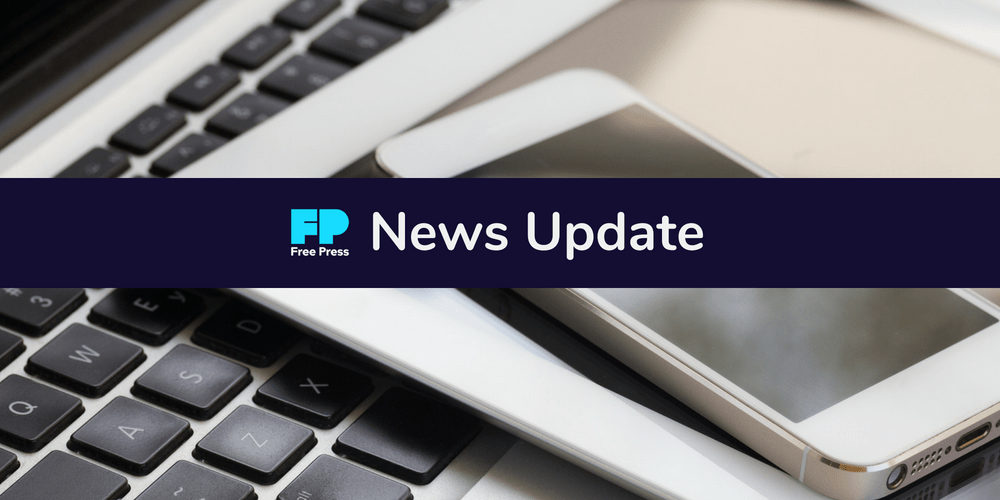Free Press Action Plan 'Keeping Connected Amid Crisis' Proposes Policies to Meet COVID-19 Pandemic Communications Needs

WASHINGTON — On Monday, Free Press Action released the report Keeping Connected Amid Crisis: Policies to Keep People Online During the COVID-19 Pandemic. The plan calls on Congress to allocate up to $100 billion in subsidies, rebates and tax relief targeted toward broadband that would benefit people, not just companies.
The money would fund a mix of emergency aid to get and keep people connected during the coming weeks of quarantine and increased reliance on internet access, along with broadband-affordability support for the coming months and years as the economy begins to recover from the effects of the pandemic. The plan also calls for funding to help finish the job on broadband deployment in rural and unserved areas, both to stimulate the economy in these regions and to build infrastructure to prepare for future crises.
Beyond laying out congressional spending and Federal Communications Commission actions, the plan commends steps some internet service providers have already taken and calls on other carriers to emulate these measures. The proposal asks those that have offered discounts and breaks to follow through on them without any strings attached. And the report notes that the FCC wouldn’t have to rely solely on companies’ pledges, promises and voluntary efforts if the agency hadn’t surrendered the authority to regulate essential broadband internet-access services.
The full report is available here (PDF) and a separate summary is available here (PDF).
Highlights of the plan include:
- $1 billion in immediate funding for the FCC’s existing Lifeline program for increases in minutes and data allowances typically available from the wireless services most Lifeline recipients use, and for the likely influx of people who’ll be laid off or lose their jobs in the coming weeks.
- $25 billion for an expanded Lifeline benefit of up to $50 per month for a home-internet connection that low-income individuals and families could use to get and stay connected.
- $5 billion for expansion of the FCC’s “e-Rate” educational connectivity program to expand school and library Wi-Fi networks into surrounding neighborhoods and to get Wi-Fi hotspots into the hands of students who have no home-internet connections.
- $50 billion for deployment of high-capacity broadband networks in rural and unserved areas to fund the broadband construction that lawmakers so often call for but rarely allocate money for.
Free Press Action Research Director S. Derek Turner made the following statement:
“Our nation is on the verge of massive, rapid job loss, which could result in an unemployment rate higher even than what the United States saw during the Great Depression. The government can greatly mitigate the harms of this economic crisis with swift action. And if we do the right things, the economy should be able to make a quicker recovery than it did during the 1930s.
“What the country needs right now is massive spending to replace lost incomes and to keep society functioning while most people are confined to their homes. The need to get and keep everyone connected to the internet isn’t up for debate. But our leaders need to act quickly to ensure that kids can continue to learn, seniors can move their routine doctors’ office visits online and as many workers as possible can continue to do their jobs remotely.
“If Congress fails to act, the economic and social impacts of this crisis will be far worse than we dare imagine. Despite the need to act now to get and keep everyone connected, reporting on the COVID relief packages under debate over the weekend suggest that the Senate’s GOP majority is unwilling to help.
“Based on the legislative drafts we’ve seen from them, Senate Republican leadership has shown no sign it understands what’s at stake, with just a tiny fraction of the stimulus in the recovery bill allocated to rural broadband-deployment grants. While there’s a need for increased deployment for our long-term stimulus needs, the immediate crisis requires substantial spending on broadband subscription and equipment subsidies.
“Fortunately, the legislative debate continues, and short-sighted Senate Republicans don’t have the only say on how our nation should move forward. We hope the House’s Democratic leadership will step up to keep people connected. The options in our report are designed to meet the needs of people both right now and during the coming months.
“Congress should immediately shore up the FCC’s Lifeline program with a $1-billion appropriation to handle the likely influx of new subscribers. And the FCC should waive regulations to make the sign-up process easier and make the subsidy usable on any wired-broadband connections, including those from cable companies that either don’t or can’t provide Lifeline today.
“These actions won’t be enough to get and keep people connected to the level of broadband services that are now more essential than ever. We propose that Congress appropriate $25 billion for a two-year Lifeline fund to give low-income households a $50 monthly subsidy they can use to obtain a robust, uncapped high-speed connection.
“This economic crisis also will create many new struggling families beyond those that currently qualify for Lifeline support. Therefore we also call for the creation of other programs that would help keep people connected, including an e-Rate@home program to expand local hotspots, as well as a variety of tax deductions, credits and other emergency funds aimed at lowering the cost of broadband, computing equipment and online learning services.
“Our nation must come together during this unprecedented moment. Getting everyone online, and keeping them connected, is necessary to keep our society connected offline too. We urge Congress to meet this urgent need with haste.”